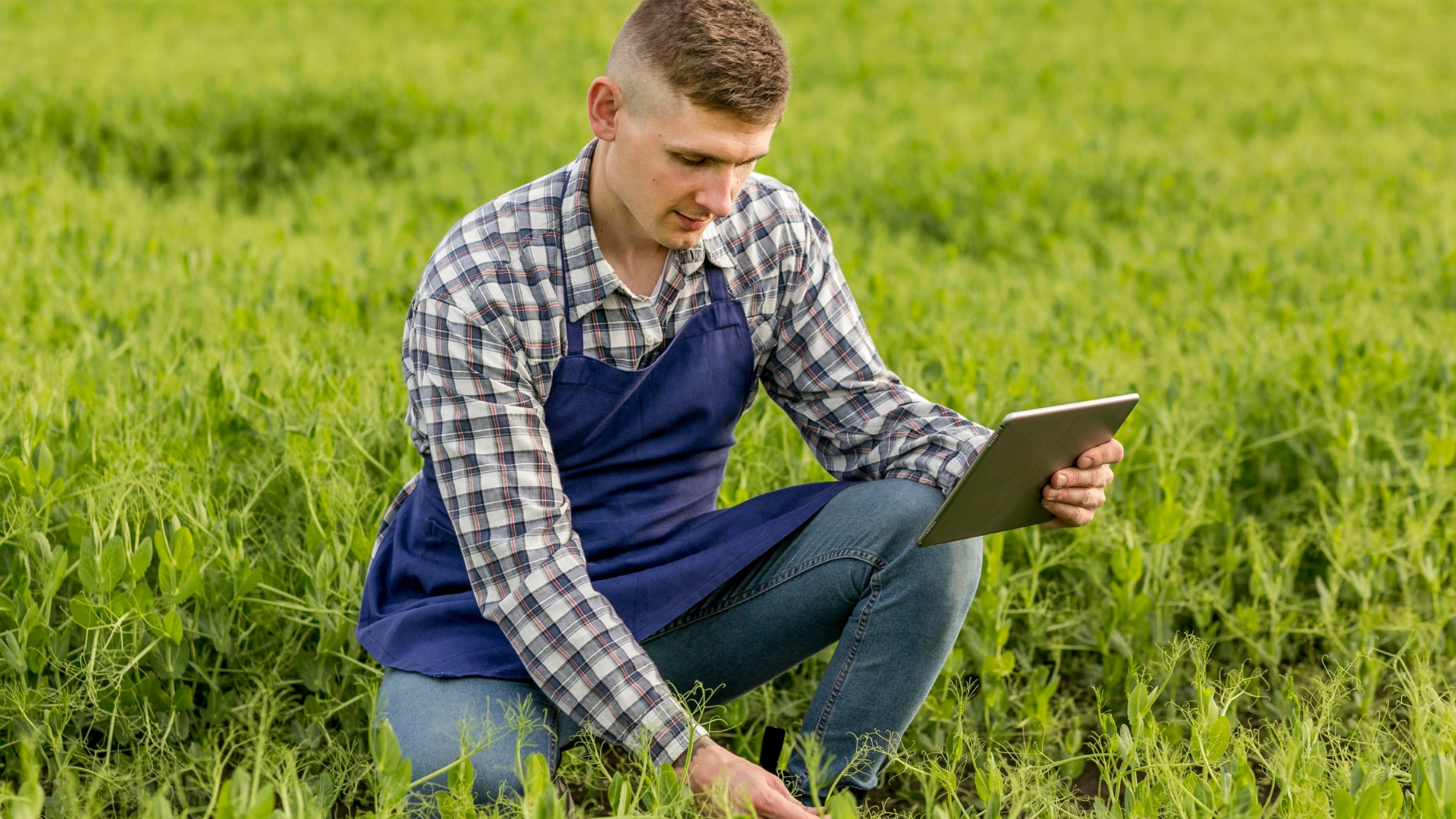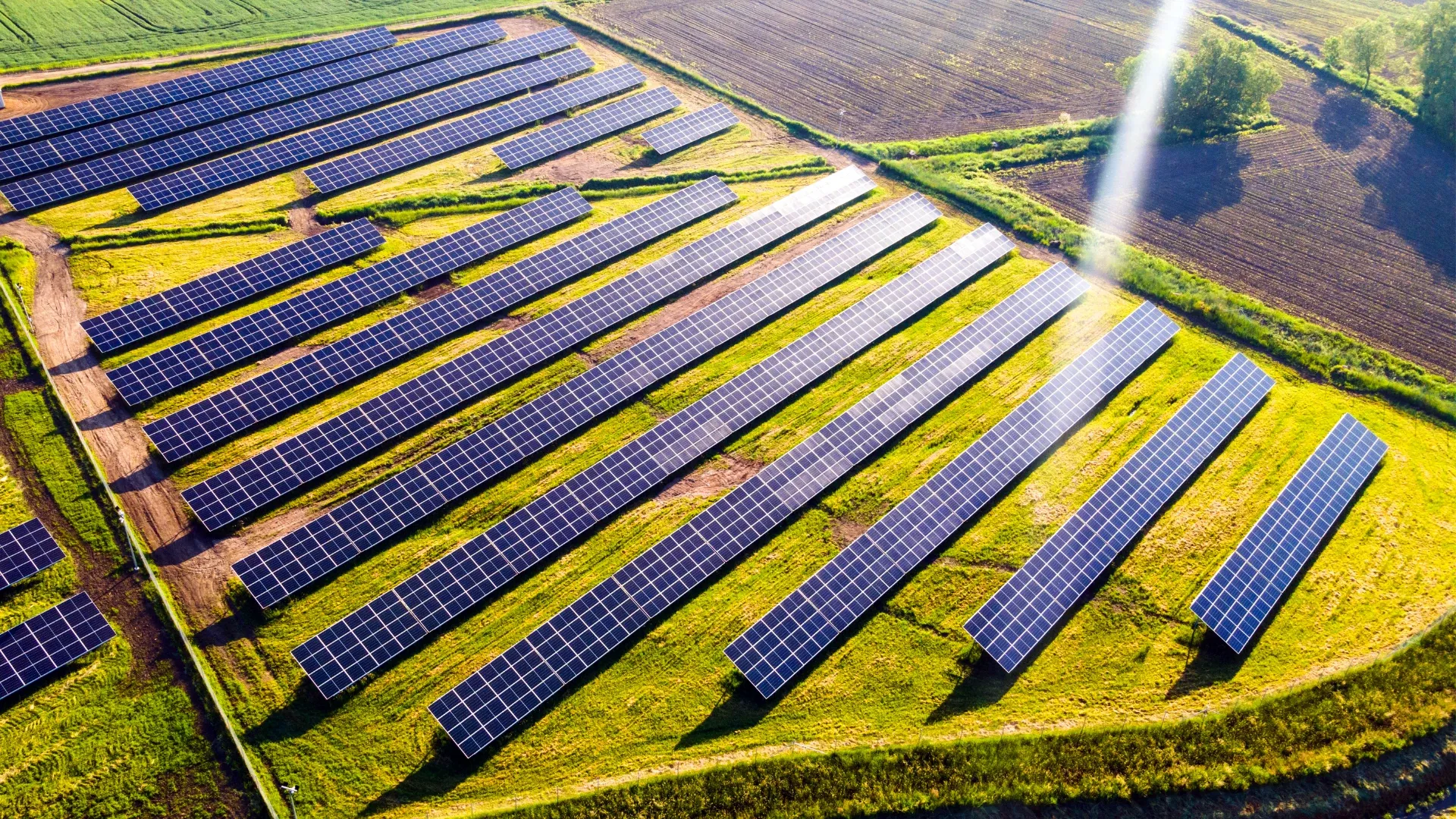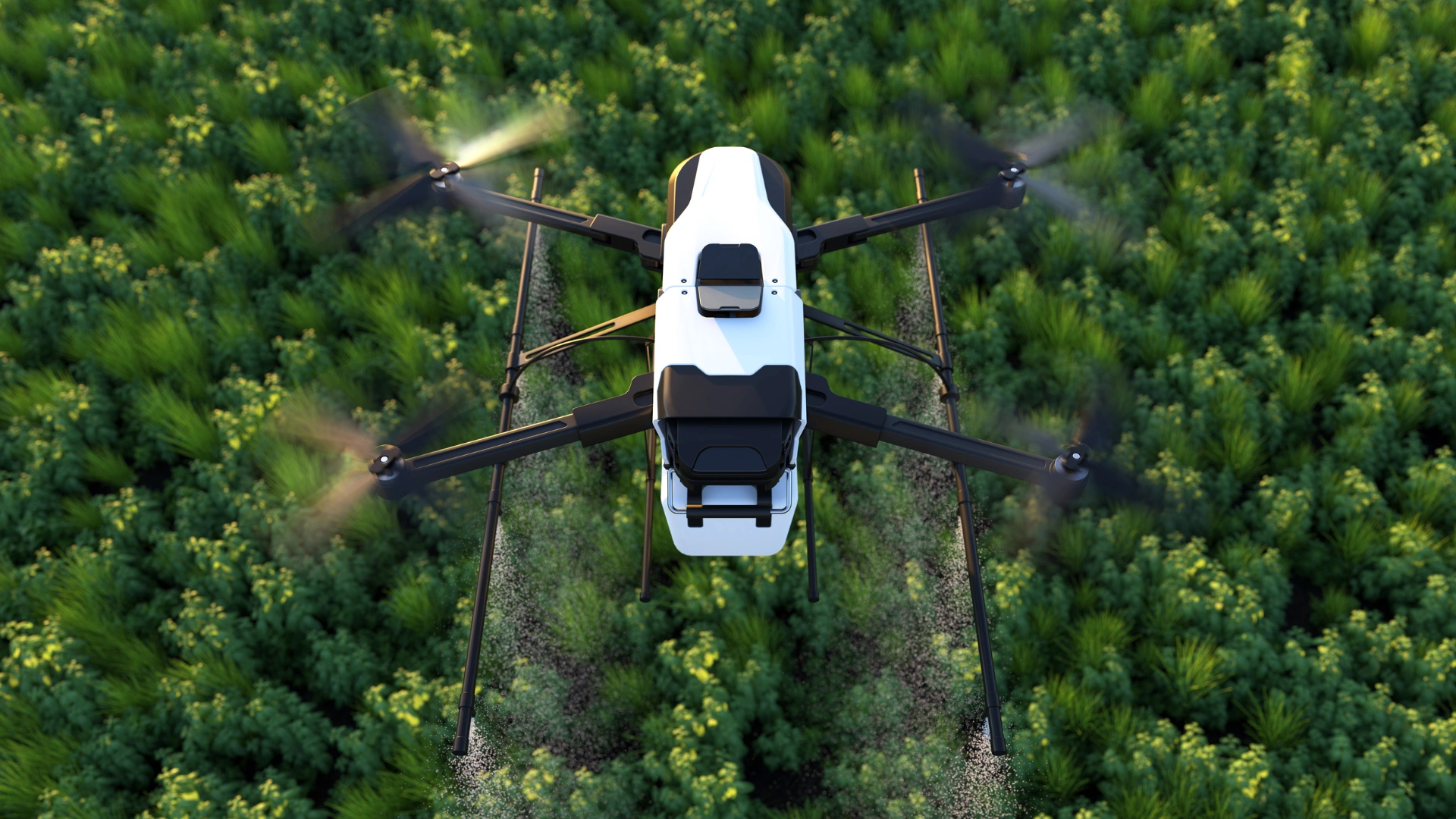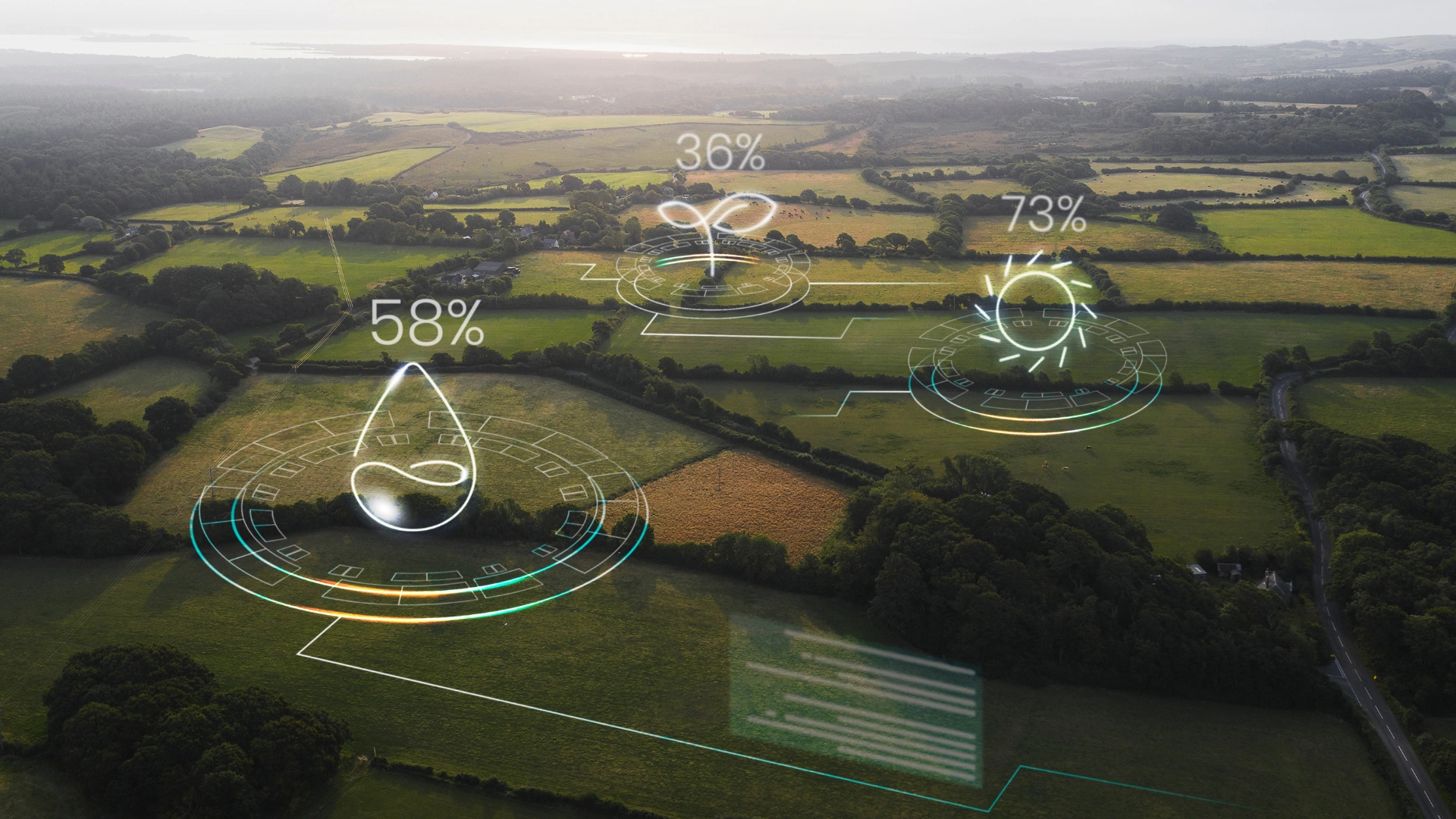Sustainable Farming Solutions: How Agrotech is Driving Environmental Change
In this blog, we explore how agrotech is enabling sustainable farming, backed by industry examples, statistics, and expert insights.
The Need for Sustainable Farming
Agriculture is responsible for 10–12% of global greenhouse gas emissions, with additional contributions from land use changes such as deforestation. Traditional farming practices often result in soil degradation, water wastage, and over-reliance on chemical fertilisers and pesticides, further exacerbating environmental issues.
However, sustainable farming offers a path forward by balancing agricultural productivity with ecological health. According to the United Nations Food and Agriculture Organization (FAO), sustainable practices could help increase global food production by 70% while reducing emissions.
Agrotech: A Game-Changer for Sustainable Farming
Agrotech encompasses technologies like artificial intelligence (AI), Internet of Things (IoT), drones, robotics, and data analytics, all of which contribute to making farming smarter and greener. Here are some key ways agrotech is driving environmental change:
1. Precision Agriculture: Minimising Waste and Maximising Resources
Precision agriculture uses technology to monitor and manage field variations in crops. Farmers can now apply water, fertilisers, and pesticides with pinpoint accuracy, significantly reducing waste.
John Deere, a leader in agricultural machinery, has developed a precision planting system that uses sensors and AI to deliver seeds at the optimal depth and spacing. According to their reports, this technology improves yields by up to 10% while reducing resource use.
- Precision farming can reduce water usage by 30–50%.
- It can cut fertiliser application by up to 40%, according to the US Department of Agriculture.
2. Smart Irrigation: Conserving Water
Water scarcity affects more than 40% of the global population, making efficient water use critical for sustainable farming. Smart irrigation systems, powered by IoT sensors and AI algorithms, optimise water delivery based on soil moisture levels and weather conditions.
Netafim, a pioneer in drip irrigation, has introduced IoT-enabled systems that provide water directly to the root zones of crops. These systems have shown a 50% increase in water-use efficiency while boosting crop yields.
3. Renewable Energy in Agriculture
Adopting renewable energy sources like solar and wind power reduces dependency on fossil fuels in farming operations. Solar-powered irrigation pumps, for instance, are gaining popularity among small-scale farmers.
In India, the government’s KUSUM scheme has subsidised over 2 million solar pumps for farmers, cutting diesel consumption by 3.5 billion litres annually.
The use of solar energy in agriculture could reduce CO2 emissions by 7–10%, according to a study by the International Renewable Energy Agency (IRENA).
4. Vertical Farming: Reducing Land Use and Food Miles
Vertical farming involves growing crops in stacked layers within controlled environments. This method requires less land, water, and pesticides and is often closer to urban centres, reducing the carbon footprint associated with transportation.
AeroFarms, a US-based vertical farming company, grows leafy greens using 95% less water and no soil. Their facilities are 390 times more productive per square foot than traditional farms.
5. Drones and Robotics: Monitoring and Managing Fields Efficiently
Drones equipped with multispectral cameras provide high-resolution images of fields, enabling farmers to identify issues like pest infestations or nutrient deficiencies early. Robotics, on the other hand, automates labour-intensive tasks, reducing reliance on harmful chemical treatments.
Blue River Technology, a subsidiary of John Deere, has developed a robotic sprayer that uses computer vision to distinguish crops from weeds, applying herbicides only where needed. This reduces herbicide use by 90%.
6. Blockchain for Transparency and Traceability
Blockchain technology enhances transparency in the agricultural supply chain, ensuring ethical and sustainable farming practices. Consumers can trace the origin of their food, promoting trust and accountability.
IBM Food Trust has partnered with major retailers like Walmart to implement blockchain for tracing produce from farm to table. This system has reduced food waste in the supply chain by 20–30%.
Blockchain in agriculture is projected to grow to $1.5 billion by 2025, driven by demand for traceability and sustainability.
Challenges to Implementing Sustainable Agrotech
While agrotech solutions hold immense promise, challenges remain:
- High Initial Costs:
Advanced technologies often require significant investment, which may deter small-scale farmers. - Technological Literacy:
Many farmers, especially in developing regions, lack the skills to adopt these solutions. - Infrastructure Gaps:
Reliable internet and electricity are prerequisites for most agrotech systems, which can be lacking in rural areas.
The Road Ahead: A Greener Future with Agrotech
Governments, private companies, and NGOs are increasingly collaborating to overcome these barriers. Initiatives like subsidies for precision farming tools, training programmes for farmers, and infrastructure development are paving the way for widespread adoption.
Case Study:
The European Green Deal aims to make agriculture climate-neutral by 2050. As part of this initiative, the EU has allocated €100 billion to support sustainable farming technologies.
Sustainable farming is the cornerstone of feeding a growing population without compromising the planet’s health. Agrotech solutions such as precision farming, smart irrigation, renewable energy, and vertical farming are transforming agriculture into a more sustainable and efficient industry.
While challenges exist, the commitment from global stakeholders and continuous technological advancements promise a greener, more resilient future for farming.
As we look to the future, it’s clear that sustainable farming powered by agrotech is not just an option—it’s the only viable path forward.
Are you looking to integrate cutting-edge agrotech solutions into your farming operations?
Partner with us to transform your agricultural practices for a sustainable tomorrow.
Explore more related content
Driving the Future: Exploring the Latest Innovations in EV Technology
Driving the Future: Exploring the Latest Innovations in EV TechnologyThe electric vehicle (EV) revolution is underway,...
Intretech Expands Global Footprint with New Manufacturing Facility in Mexico
Intretech Expands Global Footprint with New Manufacturing Facility in Mexico At Intretech, 2024 marks a pivotal year...
From Innovation to Industry Standard: The History of Injection Moulding in Manufacturing
From Innovation to Industry Standard: The History of Injection Moulding in Manufacturing Injection moulding stands as...







